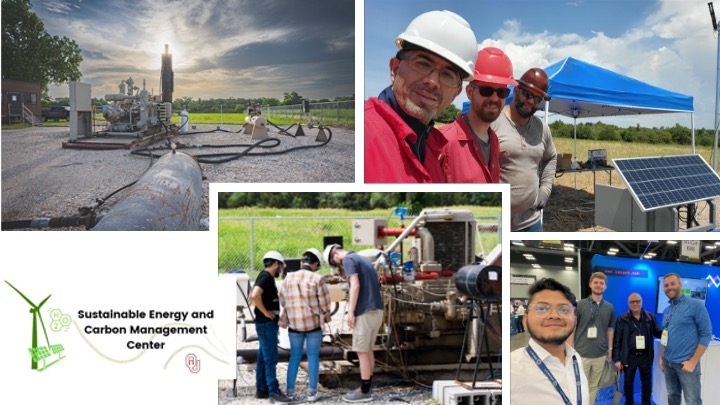Through a Department of Energy-funded project, University of Oklahoma engineers have developed a low-cost, field installable retrofit kit to reduce emissions and enhance the performance of integral reciprocating compressors used in the production, gathering, transmission and processing of natural gas.
As part of the development effort, OU will partner with Elipsa, a leader in no-code industrial artificial intelligence.
“The partnership with Elipsa has resulted in a low-cost retro-fit kit specifically designed to reduce emissions from integral reciprocating compressors, a critical machine in the field of natural gas,” said Pejman Kazempoor, Ph.D., an assistant professor in the OU School of Aerospace and Mechanical Engineering.
Integral Reciprocating compressors, known as IRCs, are used to produce the pressure needed to propel natural gas through the networks of pipelines that deliver gas to homes and businesses around the world. There are over thousands of IRCs running 24 hours a day in the United States alone.
Many of these compressors have been in service since the 1940s and have decades of service life to go, Kazempoor says. Given the volume and high replacement cost for this equipment a retrofit kit offers a realistic solution for reducing air pollution while increasing machine efficiency, he adds.
The OU team is comprised of Kazempoor, Ramkumar Parthasarathy, Ph.D., and Sridhar Radhakrishnan, Ph.D., along with lab manager James Lynch, Carlos Pena, a Ph.D. candidate, and graduate research assistants Mohammed M. Ansari and Mathew Hartless, and Tu Nguyen, School of Aerospace and Mechanical Engineering.
“We are excited and proud to see our AI solutions applied to such important real-world problems like air quality and sustainability. We started Elipsa with the intention of democratizing AI in the industrial space and this is proof-positive that putting the tools in the hands of the operators has the potential to change the world for the better,” said Elipsa co-founders Jeff Kimmel and Josh Boyle.
The research is funded through a cooperative agreement with the Department of Energy and a grant by the Office of Fossil Energy.
To learn more about Elipsa, visit www.elipsa.ai.
To learn more about the Gallogy College of Engineering at the University of Oklahoma, visit www.ou.edu/coe.
By Lorene A. Roberson, OU Gallogly College of Engineering
